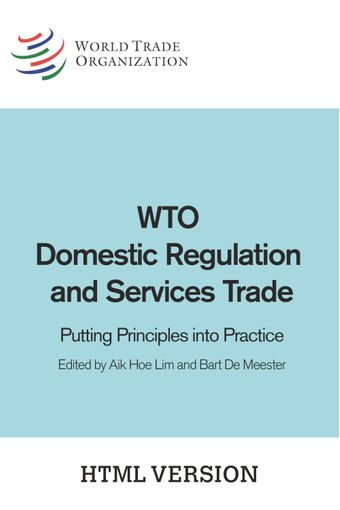Domestic regulations in Malaysia’s higher education sector

- Authors: Tham Siew Yean, Nik Ahmad Kamal, Nik Mahmod and Sherry Stephenson
- Source: WTO Domestic Regulation and Services Trade , pp 16-16
- Publication Date: January 2009
- DOI: https://doi.org/10.30875/175d233e-en
- Language: English
The growth of private higher education institutions (PHEIs) in Malaysia is politically and economically motivated. Excess demand and the use of ethnic quotas in a limited number of public universities with the implementation of the New Economic Policy in 1970 had raised the potential for inter-ethnic conflicts in multi-ethnic Malaysia. The government therefore utilized private provision to supplement public supply, thereby increasing access and reducing the possibility of inter-ethnic conflicts due to limited access. Over time, the perennial deficit in services trade since independence in 1957 contributed to the idea of using private higher education to reduce student outflows and its negative impact on services trade and, instead, to increase export revenues through inflows of international students. This led to the aspiration to be a regional hub for higher education based on Malaysia’s comparative advantage in terms of costs and language via the use of English in transnational programmes offered in PHEIs, with degrees awarded by parent institutions in developed countries such as Australia and the United Kingdom.
-
From This Site
/content/books/9789287046826s011-c013dcterms_subject,pub_countryId-contentType:WorkingPaperSeries -contentType:Periodical -contentType:BookSeries -contentType:ReportSeries105


